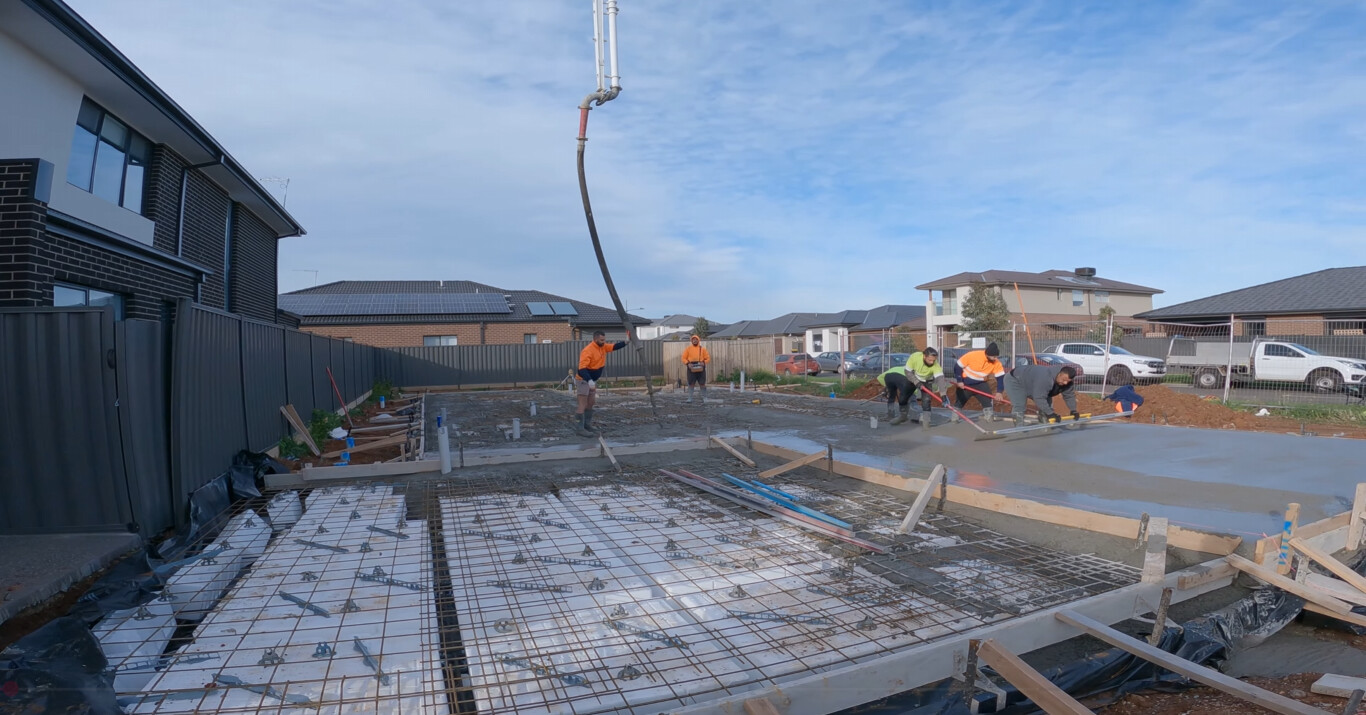Concrete Slabs & Flatwork
Strong, level concrete slabs for any residential or commercial application.

What Concrete Slabs and Flatwork Include
When contractors talk about flatwork, we mean any concrete that gets poured and finished at ground level. This includes everything from garage floors and shed pads to basketball courts and equipment pads. If you need a flat, stable surface made from concrete, that is flatwork.
We pour concrete slabs throughout Jurupa Valley, CA for both homes and businesses. The principles are the same whether we are building a small storage shed pad or a large warehouse floor. Proper ground preparation, adequate thickness, and correct finishing techniques create slabs that stay level and crack-free for decades.
Types of Slabs We Install
Different applications require different slab specifications. Here are the most common types of concrete flatwork we install:
- Garage floors: Level surfaces with proper drainage and finish for vehicle use
- Shed and storage pads: Stable foundations for outbuildings and storage units
- Equipment pads: Reinforced slabs for HVAC units, generators, and heavy machinery
- Basketball and sport courts: Smooth, level surfaces with proper dimensions
- RV and boat pads: Extra-thick slabs to support heavy recreational vehicles
- Commercial floors: Industrial-grade concrete for warehouses and workspaces
Each type has specific requirements for thickness, reinforcement, and finish. We design your slab based on what it needs to support and how you will use it.
The Installation Process
Quality flatwork starts below ground. We excavate to the proper depth and create a stable base that will not settle or shift. This is especially important in areas with expansive soil like parts of Southern California. Poor base preparation causes more slab problems than any other factor.
After excavation, we install a compacted gravel base. This layer provides drainage and distributes weight evenly. Then we add a vapor barrier if needed to prevent moisture from wicking up through the concrete. Steel reinforcement goes in next, either rebar or wire mesh depending on the slab size and purpose.
The concrete pour itself requires careful attention to weather and timing. We level and smooth the surface, then finish it based on your needs. A broom finish works well for outdoor slabs where you want traction. Smooth troweled finishes are better for garage floors where you might apply epoxy coating later.
If your slab supports a structure, we coordinate with foundation requirements to ensure everything connects properly. For simple ground-level slabs, the process is similar to patio installation but with different thickness specifications.
Getting the Thickness Right
Slab thickness depends on what the concrete needs to support. A standard slab for light use like a shed pad is typically 4 inches thick. Garage floors usually need 4 to 6 inches. Equipment pads for heavy machinery or RV parking often require 6 inches or more.
Thicker concrete costs more but prevents costly repairs later. We help you find the right balance between initial cost and long-term durability. Sometimes adding an extra inch of thickness and more steel reinforcement makes sense even if you do not think you need it. That extra margin of safety pays off over the life of the slab.
Need a Concrete Slab for Your Property?
Whether you need a garage floor, equipment pad, or custom flatwork, we can help. Call us today for a free estimate on your concrete slab project.
(951) 393-1148